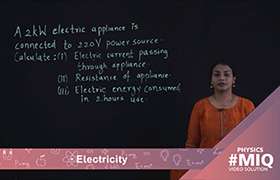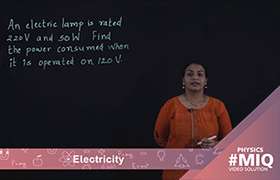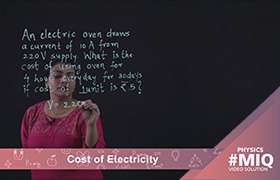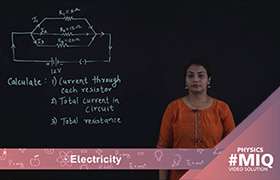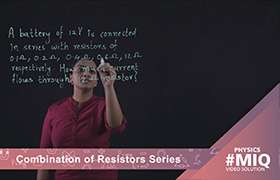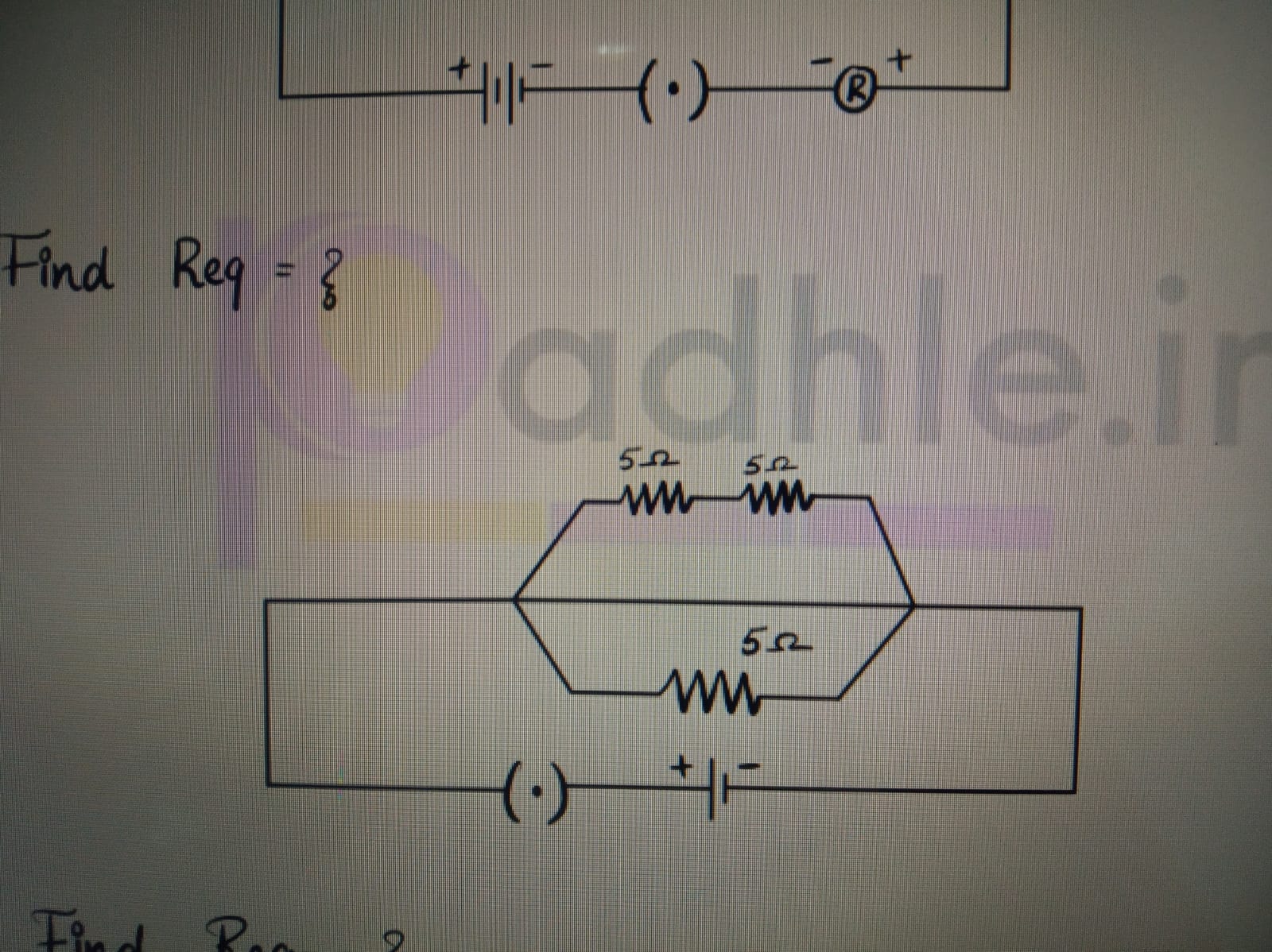CBSE Class 10 Answered
Let the three resistances be R1, R 2 , and R3.
Let the effective Resistance in series be Rs, and in parallel be Rp.
Given: Rs = 30 ohm and Rp =3 ohm.
We know that Rs = R1 + R2 +R3 = 30 . Equation (1)
Equation (2)
If two of the three resistances are equal, then R1 =R2 =R (say).
From (1);
R+R+R3 =30
R3 = 30 2R Equation (3)
From (2);
3(2R3+R) = RR3
6R3 +3R =RR3
Using (3); 6(30-2R) + 3R =R (30-2R)
180-12R+3R =30R-2R2
2R2 39R +180=0
Solving the quadratic equation,
Taking one possible value, we get
R1=12 , R2 =12 and R3=6 since R3=30-2R
Taking the other possible value, we get
R1=7.5 , R2=7.5 and R3 = 15 since R3=30-2R

